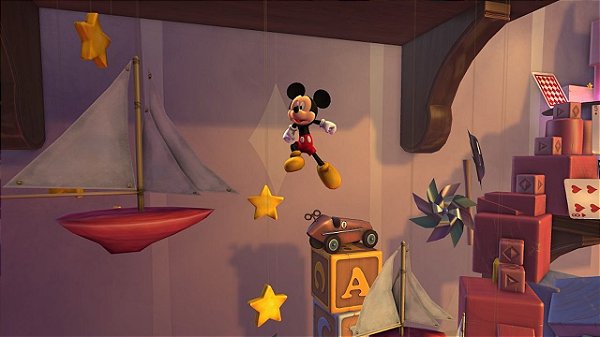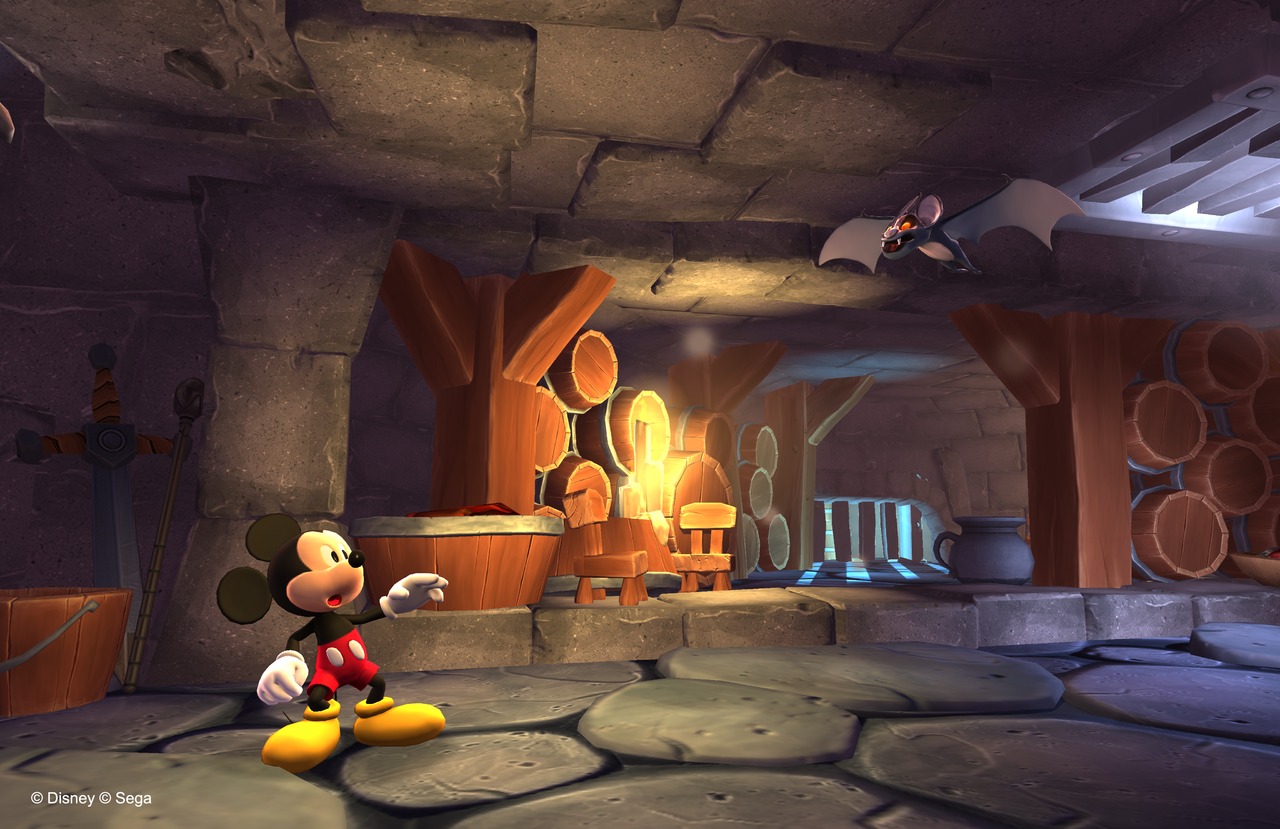

Stunning backgrounds are complimented by outstanding animation. Like its predecessor, it's also an absolutely gorgeous game. On the whole, the game plays a little slower as well, but there are lots of neat mechanics such as climbing along a spider's web, swimming in a bubble in the rare underwater level that doesn't totally suck, and using Alice in Wonderland's card guards as platforms. Playing cooperatively yields even more variances in the path you'll take, but none of them will test your reflexes too harshly.


Playing as either Mickey or Donald is relatively the same, though there are some exclusive stages to each which greatly enhances replayability. World of Illusion is significantly easier than Castle was, owing perhaps to the attempt to cater towards young and old alike. Mickey Mouse and Donald Duck are still beloved by children (and adults) the world over, and the two-player option means you and your child can work together to solve the game's traversal puzzles. In fact, if you're looking to get your children into gaming, this is a perfect jumping off point. World of Illusion fails to capture the magic of Castle, despite magic being a prevalent theme ironically, but it's still a solid and beautiful platform adventure that's perfect for family gaming. This time, Donald Duck was along for the ride and the game featured two-player cooperative play, as well as branching paths depending on who you picked in single player! Two years later, SEGA tried to catch lightning in a bottle once again with the much-anticipated sequel, World of Illusion. It was an early showcase for what the Genesis was capable of with stellar presentation and tight gameplay. The original Castle of Illusion starring Mickey Mouse was one of the standout titles from the early Genesis library.


 0 kommentar(er)
0 kommentar(er)
